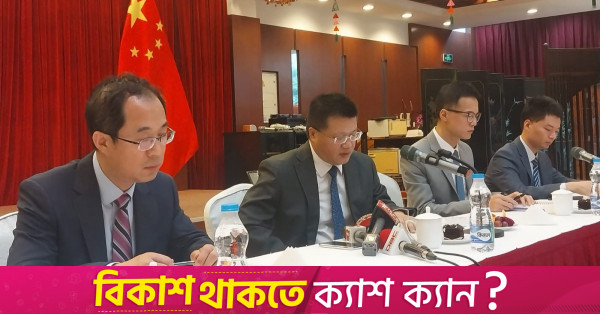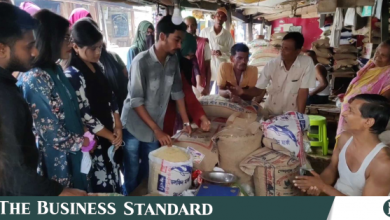China to continue zero-tariff facilities post-LDC: Envoy


PM Hasina’s July 8-10 visit was “successful”, says Yao Wen
Chinese Ambassador to Bangladesh Yao Wen speaks at a media briefing at the Chinese Embassy in Dhaka on Tuesday. Photo: Courtesy
“>
Chinese Ambassador to Bangladesh Yao Wen speaks at a media briefing at the Chinese Embassy in Dhaka on Tuesday. Photo: Courtesy
China will continue to provide zero-tariff treatment on 98% of taxable items to Bangladesh for a transitional period beyond 2026, when the South Asian country will graduate from LDC status.
Chinese Ambassador Yao Wen made the comments at a press conference at his country’s embassy in the capital’s Baridhara on Tuesday.
He termed Prime Minister Sheikh Hasina’s visit to China on 8-10 July as “successful.”
The envoy mentioned that during the visit, the completion of the feasibility study for the free trade agreement (FTA) was announced, and the two sides will officially start negotiations anytime this year.
He emphasised that China’s market is open to Bangladesh, offering opportunities for an increase in exports through duty-free facilities. With a vast market of 1.4 billion people, China has signed a memorandum of understanding to import mangoes from Bangladesh and expressed interest in importing jute products and leather as well.
When asked why Bangladesh did not receive the expected $5 billion in trade support and $2 billion in budget support, he explained that discussions on financial support took place during the prime minister’s visit. China has now committed to providing concessional and commercial loans totalling approximately $2 billion. The prime minister of Bangladesh addressed this in a speech two days ago.
He said both countries are actively working to enhance people-to-people contacts in commemoration of the half century of Bangladesh-China diplomatic relations in 2025, with plans to develop a roadmap for this initiative.
Regarding the duration of Prime Minister Sheikh Hasina’s meeting with Chinese President Xi Jinping, Yao Wen clarified that he was present during the nearly hour-long meeting and is familiar with the topics discussed. He dismissed the notion that the meeting lasted only 30 minutes as “nonsense.”
When asked about discussions on the Teesta management agreement, the ambassador said Teesta is a project concerning Bangladesh, and China believes Bangladesh will make independent decisions regarding this matter.
Concerning the repatriation of Rohingyas, he affirmed that Beijing is committed to addressing this issue. The repatriation process has commenced on a trial basis, although the current internal situation in Myanmar is considered unsafe.
China is collaborating with the United Nations, the Association of Southeast Asian Nations, and other countries to facilitate the safe repatriation of Rohingyas, he added.
The Chinese ambassador said, “China-Bangladesh relations have been elevated to a higher level. The leaders of our two countries agreed to elevate the bilateral relationship to a comprehensive strategic cooperative partnership. This is the most important political outcome of the visit.”
He said that during Sheikh Hasina’s visit, the two sides also discussed the Global Development Initiative (GDI), the Global Security Initiative (GSI), and the Global Civilisation Initiative (GCI) put forward by President Xi Jinping. The Chinese side is ready to share its experience on GDI issues with the Bangladesh side.
Yao Wen said the Chinese side has responded positively to Bangladesh’s concerns about the expansion of export financial assistance. The Chinese side agreed to provide assistance equal to $2 billion to Bangladesh under packages of grants, interest-free loans, concessional loans, and commercial loans.
The Chinese side supports the Southern Integrated Development Initiatives (SIDI) of Bangladesh, among others, under the framework of the Belt and Road Initiative to help this region achieve balanced and sustainable development, he added. ***




